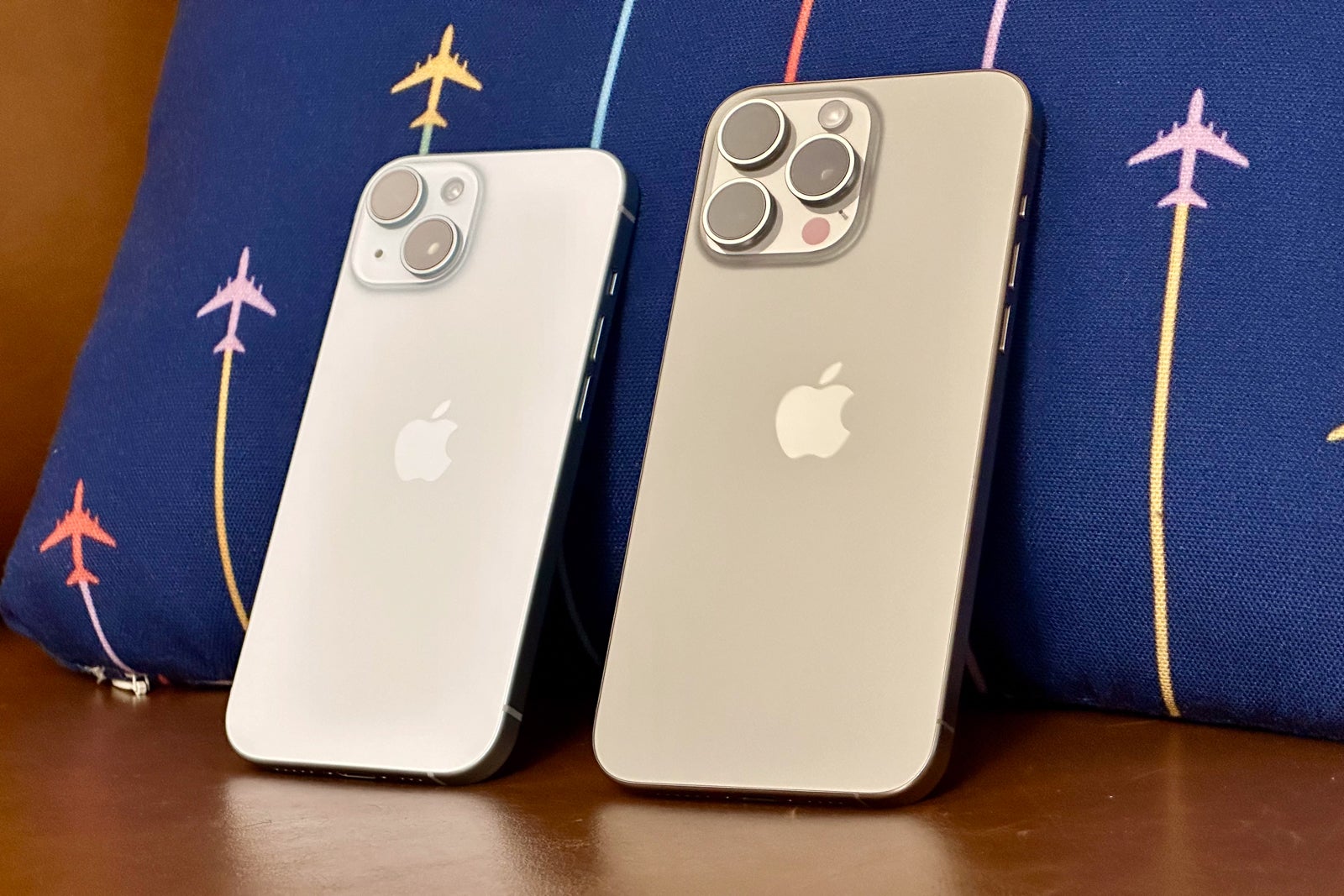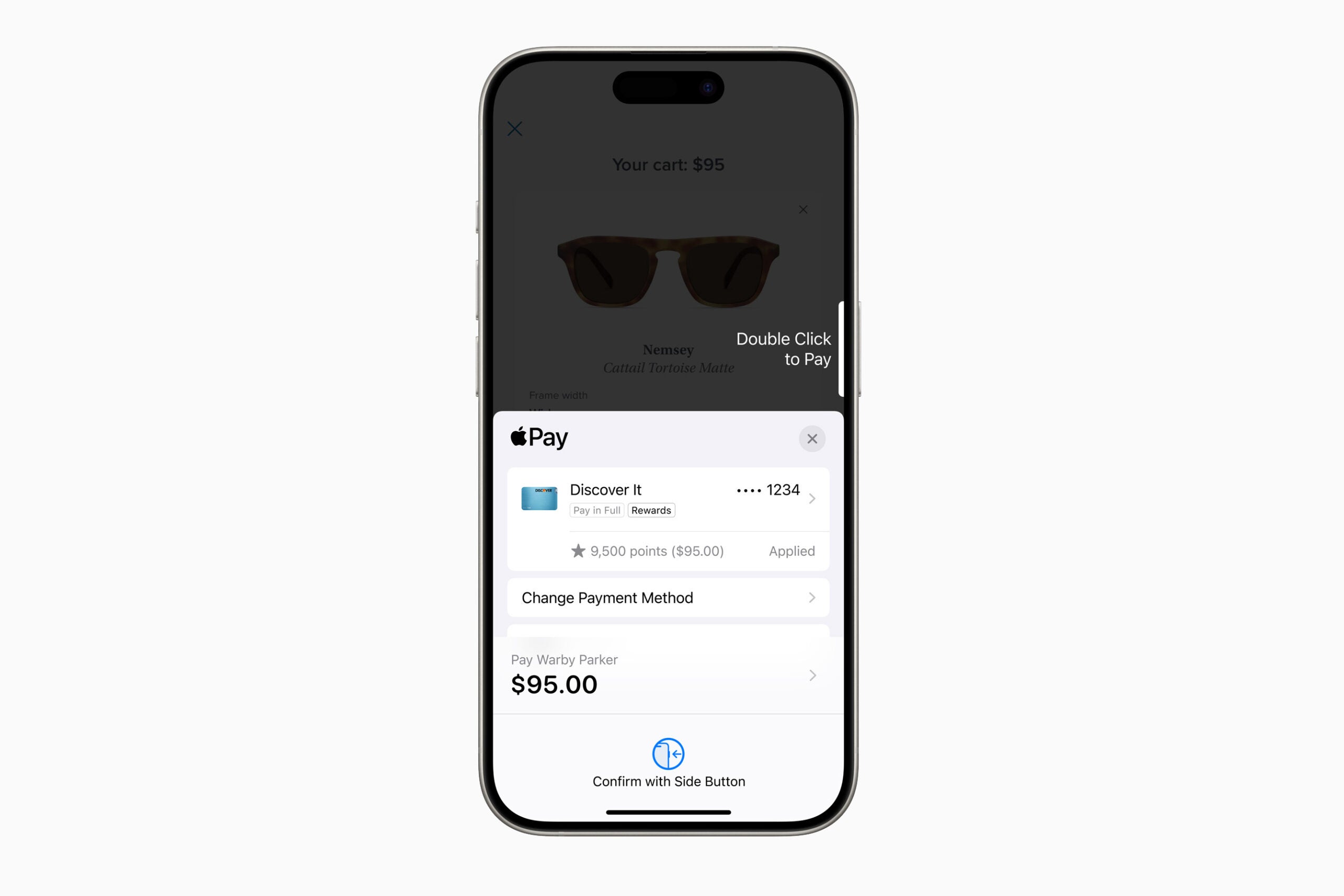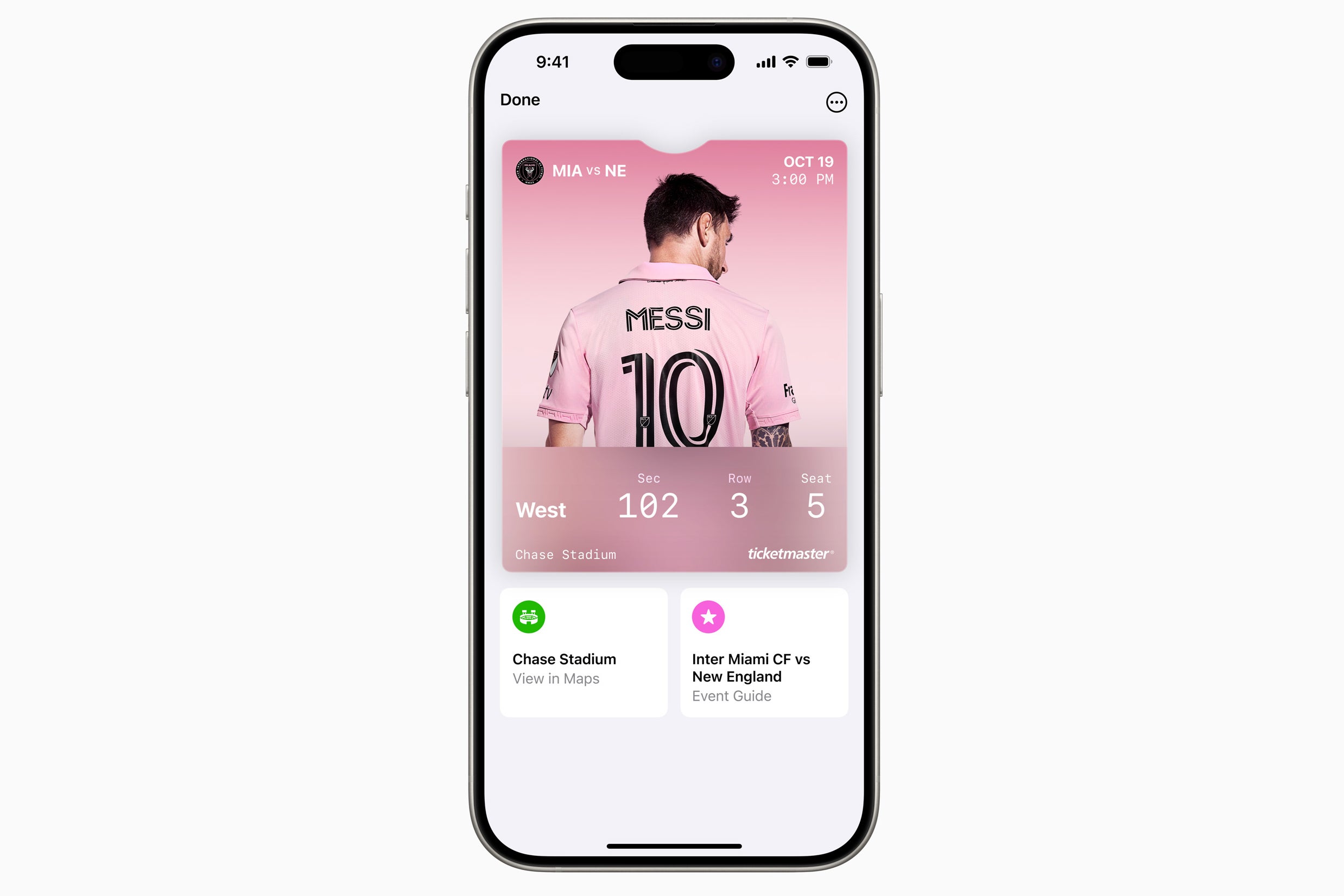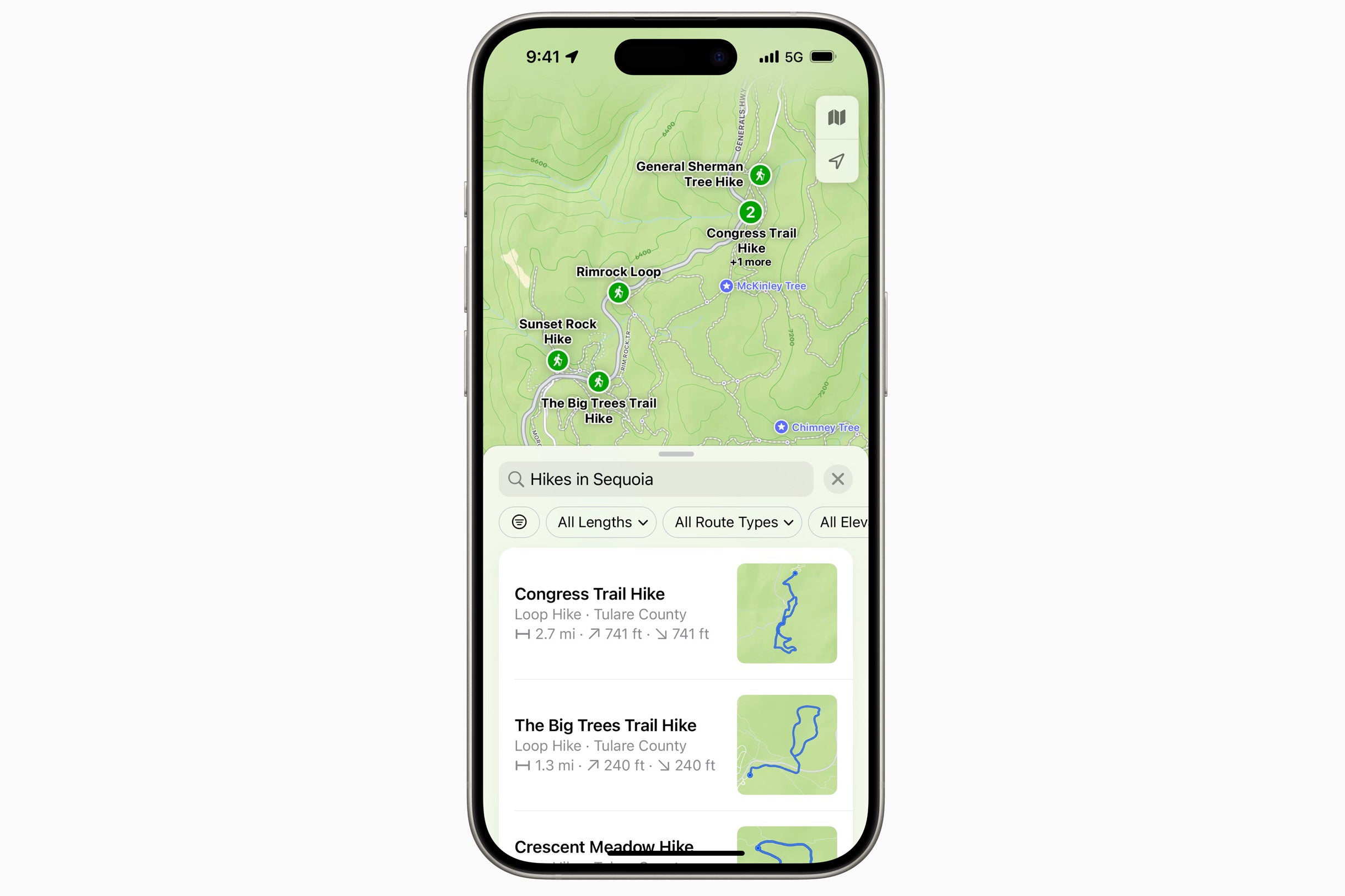Travel
Apple unveils new travel-friendly features coming to Apple Pay, iPhone, AirPods – The Points Guy

Apple is on a mission to replace your physical wallet with a digital one.
The tech giant first launched Apple Pay 10 years ago. It was originally designed as a service to streamline payments, but it’s since then morphed into an entire wallet experience that includes your credit cards, driver’s license, event tickets, boarding passes and much more. In fact, the platform now covers a whopping 11,000 banks and networks.
And now, the company is back with additional improvements that it believes will further enhance the payment experience on your Apple devices.
At Monday’s Worldwide Developers Conference, Apple unveiled a slew of new features debuting this fall across every product platform. This included some noteworthy Apple Pay-related announcements, as well as a long list of travel-friendly improvements coming to your iPhone this year.
Here’s the latest.
Apple Pay will accept points
Perhaps the biggest news for TPG readers is that Apple Pay will officially accept points.
Historically, Apple Pay has only allowed cash purchases using linked credit cards. However, that’s changing this fall with the release of iOS 18.
When it launches this fall, you’ll be able to pay with points through the Apple Pay interface no matter what merchant you shop at. The ability to redeem rewards will debut with Discover and Synchrony and be available across Apple Pay issuers with Fiserv.
I’d expect that the points giants like American Express, Chase and Capital One will adopt this feature in the coming months, too.

Daily Newsletter
Reward your inbox with the TPG Daily newsletter
Join over 700,000 readers for breaking news, in-depth guides and exclusive deals from TPG’s experts
You’ll also be able to redeem cash-back rewards from any of your eligible cards when this launches. You’ll see your points or cash-back balance directly on the Apple Pay screen, and tapping the “rewards” button will open a new screen that allows you to select how many points (or how much cash back) you want to redeem.
The redemption rates are going to be handled by your credit card issuer, so you’ll want to pay attention to the offers directly in the app before proceeding with these redemptions. In many cases, savvy travelers can do better by converting points into frequent flyer miles with partners.
But for many cards, including the popular cash-back Citi Double Cash® Card (see rates and fees), this new feature will make it easier than ever to redeem cash back during the checkout process.
Note that the issuer will be responsible for adjusting your statement balance on the back end when you apply rewards. Just be sure to periodically check your balances to ensure that everything went through correctly.
Adding cards to Apple Pay gets simpler
Adding your credit cards to Apple Pay has historically required manually inputting the credit card number, expiration date, security code and cardholder name into the Wallet application.
This was a tedious process, especially for someone like me who holds north of 30 credit cards.
Fortunately, this process is getting a big upgrade with the debut of a new feature this fall dubbed Tap to Provision.
Going forward, adding a new credit card to Apple Pay will simply require a quick tap on the back of your iPhone. This will support eligible contactless cards and will no doubt streamline the Apple Pay onboarding process.
Apple Pay on non-Apple devices
The tech giant is also making a rare move by letting users transact with Apple Pay on third-party web browsers.
Apple typically keeps a close guard on its tech, but beginning this fall, users will be able to scan a QR code on other browsers, such as Chrome, to check out with Apple Pay. You’ll be able to redeem rewards or pay using cash via third-party web apps.
Apple’s other travel-related improvements
These new Apple Pay features are only the tip of the iceberg in terms of what was announced this week. In fact, every Apple device is getting a big upgrade with new, free software updates that will be released in the fall.
Many of the updates should be a boon for travelers, including some of the highlights mentioned below.
Apple Intelligence
Every Apple device is getting a built-in artificial intelligence assistant that integrates across every app. For example, when you ask Siri for your upcoming flight or hotel details, it will automatically read your email or calendar and share the latest status so that you don’t have to do the digging yourself.
Redesigned event tickets
Whether it’s a Taylor Swift concert or a sports game, the digital ticket experience is getting an upgrade with new features that integrate key event information directly into the ticket.
This includes maps of the venue and parking details, in-seat food delivery and local forecasts.
Maps for hikes
Historically, I’ve used AllTrails to get directions for hikes, but Apple will take on this incumbent with the introduction of hiking directions built directly into its proprietary maps application.
Apple will integrate hikes at all 63 U.S. national parks (along with other popular local trails), and you’ll be able to save them for offline use as well.
Messages via satellite
Speaking of hiking, when you’re off the grid, you might not have a cell or Wi-Fi signal.
Historically, that meant you were unreachable, but that’s changing with the introduction of messages via satellite. With the new software, iPhones with built-in satellite transmitters (the iPhone 14 or later) will be able to send and receive messages using satellites when there is no cell or Wi-Fi signal.
This is a game changer for those who frequently find themselves without reception.
AirPods for travel
When you’re in the airport carrying your bags, you might not be able to touch your phone to answer a call or respond to a notification.
But with a new feature coming to the second-generation AirPods Pro, you’ll be able to simply shake your head yes or no to respond to notifications or answer a phone call.
And voice isolation is coming to AirPods Pro, which will block out distracting background noise (like boarding announcements) when taking calls with AirPods.
Train mode on Vision Pro
Apple’s new $3,500 spatial computer, Vision Pro, already has a built-in travel mode, but this feature only works on airplanes.
However, later this fall, the company will add support for train travel to Vision Pro.
It remains to be seen how many Amtrak travelers will use this device during their commutes.
Related reading:










:max_bytes(150000):strip_icc()/roundup-writereditor-loved-deals-tout-f5de51f85de145b2b1eb99cdb7b6cb84.jpg)


